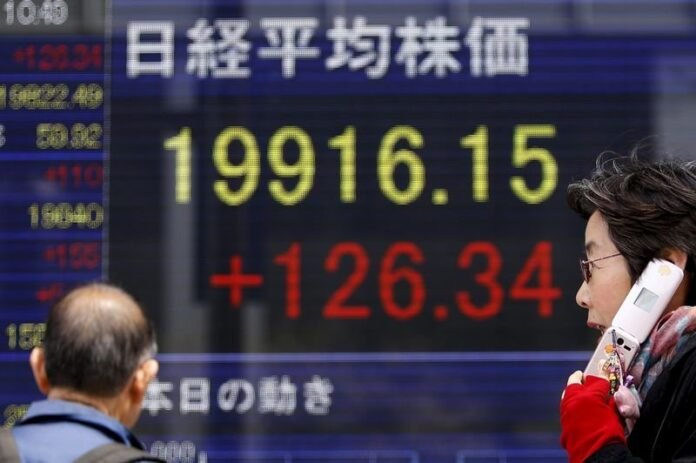Asian stocks mostly traded in a narrow range on Friday, continuing their downward trajectory for the week as concerns over slower-than-expected U.S. interest rate cuts dampened investor sentiment. Japan’s markets were a slight exception, showing modest gains despite stronger-than-expected consumer inflation data, which fueled expectations for potential future interest rate hikes by the Bank of Japan (BOJ).
The Federal Reserve’s signal of a slower pace of rate cuts in 2025 has contributed to a global risk aversion, with most Asian markets seeing steeper losses this week. Wall Street closed flat overnight after a sharp pullback, and Wall Street futures showed muted action in Asian trading.
Japan’s CPI Surprises, While BOJ’s Cautious Stance Supports Stocks
Japan Nikkei and Topix indices rose by 0.2%, faring better than most of their regional counterparts, although both indices are set to close the week down by up to 1.4%. November’s consumer price index (CPI) data showed core inflation well above the BOJ’s 2% target, underscoring the possibility of more interest rate hikes. However, BOJ Governor Kazuo Ueda indicated that any rate hikes would likely be postponed until 2025, adding a layer of uncertainty to the outlook.
Chinese Stocks Stabilize Amid PBOC Rate Decision
Chinese stocks remained relatively flat, with the Shanghai Composite and Hong Kong Hang Seng index both showing slight gains. Despite these modest improvements, Chinese markets have been battered this week, primarily due to weak economic data and concerns over global policy uncertainties. The People Bank of China (PBOC) left its benchmark interest rate unchanged, as policymakers are constrained by a weak yuan and limited room for further rate cuts.
Hawkish Fed Outlook Pressures Broader Asia
Elsewhere in Asia, broader markets were weighed down by the Fed hawkish outlook. Australia ASX 200 index fell 1.3%, impacted by a sharp 3.7% drop in Wesfarmers Ltd, which announced a significant divestment. The Australian market was on track for nearly a 3% decline this week. In South Korea, the Kospi slid 1.3%, driven by ongoing political uncertainties and losses in the technology sector, especially among semiconductor stocks.
India Set for Weak Open Amid Global Market Woes
Indian stocks also pointed to a weak open on Friday, with the Nifty index nursing a 2.3% loss this week. As global sentiment remains bearish and the hawkish Fed outlook lingers, Indian investors face a challenging environment to begin the final leg of the week.
As Asian markets continue to adjust to global economic signals, investors are likely to remain cautious, with the Fed policies playing a crucial role in determining the direction of equities worldwide


